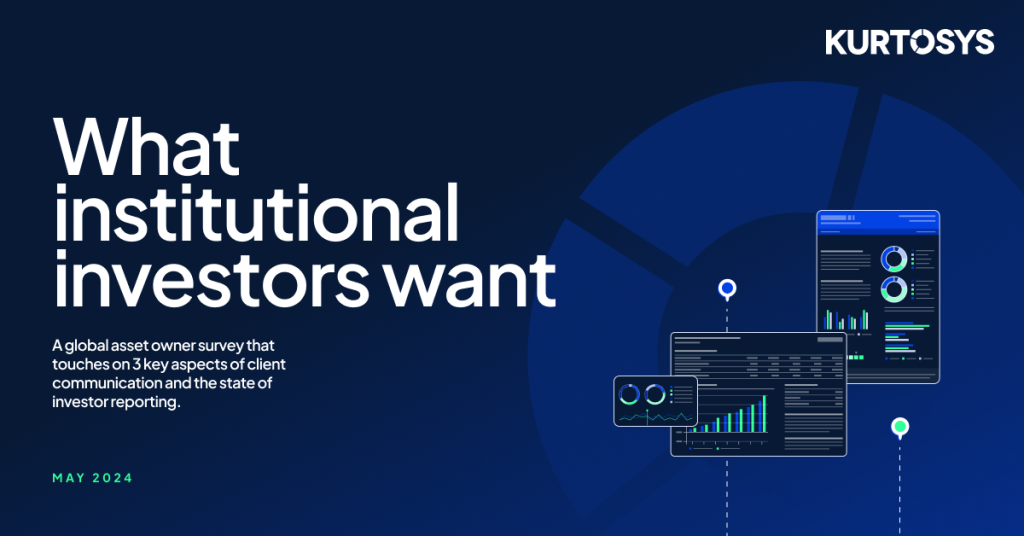Whilst at Funds Congress earlier this year, the transformative potential of AI in asset management took centre stage. From enhancing client experiences with cutting-edge digital tools to redefining investment strategies, the consensus was (as you would expect) that AI promises to be a game-changer for the industry. This new wave of technology could elevate the entire asset management landscape, making it more efficient, personalised, and forward-thinking. However, while the excitement is palpable, it’s essential to balance optimism with pragmatism. The journey of integrating AI into asset management is still unfolding, and the industry must navigate it with a mix of curiosity, investment, and an open mind.

Image: www.fundscongress.com
The adoption of generative AI and large language models in asset management is accelerating, with major players like J.P. Morgan Asset Management leading the charge. As highlighted in a recent Ignites article, Patrick Thomson, J.P. Morgan’s CEO for EMEA, emphasises that technology is now the firm’s “biggest area of investment.”
J.P. Morgan Asset Management allocates around $400 million annually to technology, viewing it as a critical competitive advantage. Thomson explains that the firm aims to make its proprietary investment platform, Spectrum, as efficient as possible, leveraging AI to help analysts make better decisions. This focus on technological efficiency is seen as a response to increasing cost pressures across the industry.

Despite the enthusiasm, it’s important to recognise that the full impact of AI on asset management is still emerging. While firms like J.P. Morgan are not scaling back on investments despite market challenges, the sector must maintain a balanced approach. This means not only investing in AI but also fostering a culture of experimentation and collaboration. By doing so, firms can harness the potential of AI without succumbing to the hype.
 Consistent investment in technology, even in tough market conditions, is crucial. Allocating substantial resources to AI development can provide a competitive edge and drive efficiency (clearly the aim for J.P. Morgan here). Back at Funds Congress, Martin Moeller, Director of Artificial Intelligence and Generative AI at Microsoft, declared that “the financial services industry is leading the way in Gen AI adoption,” I have no doubt this rings true for B2C but, if the messaging from Patrick Thomson and the actions of other firms is anything to go by, could well be true for the asset and wealth management industry too.
Consistent investment in technology, even in tough market conditions, is crucial. Allocating substantial resources to AI development can provide a competitive edge and drive efficiency (clearly the aim for J.P. Morgan here). Back at Funds Congress, Martin Moeller, Director of Artificial Intelligence and Generative AI at Microsoft, declared that “the financial services industry is leading the way in Gen AI adoption,” I have no doubt this rings true for B2C but, if the messaging from Patrick Thomson and the actions of other firms is anything to go by, could well be true for the asset and wealth management industry too.
Keeping the client at the centre
Having worked across digital and marketing for the past 25 years, my focus is always drawn to the experience and how we can leverage new technologies, underpinned with a client-centric approach to provide better client experiences and commercial outcomes.
- How can new technologies be applied to enhance the client experience?
- How can firms utilise these technologies to get more accurate information to the right people faster?
- How can organisations become more efficient and effective to provide more value when servicing their clients?
- How can the services they offer become more profitable and commercially competitive?
- How can they differentiate as a brand, maintain brand consistency across regions, and stand out in crowded marketplaces?
- How can they ensure they are 100% compliant and manage risk and changing regulations?
These questions are crucial not just for investment decisions / asset allocation, but for the broader operational and marketing aspects of asset management (in fact any firm, irrelevant of industry / sector).
For instance:
- How can this technology be embedded to enhance marketing, distribution, operations, and the client group model that many asset managers are adopting?
- Can it help bring the investor experience across alternative/private markets or institutional portals more closely in line with modern digital expectations?
- How can an asset manager create and disseminate relevant and valuable investment insights and product content faster across broader regions?
Beyond immediate outputs
Understandably, clarity on where to focus for winning with AI hasn’t fully arrived yet – not within the more operational elements or even with marketing and investor communications across asset management. While these areas don’t necessarily correlate directly to inflows early adopters will undoubtedly be able to provide real differentiation to clients and come across as leaders across the industry as they trial new tools via proof of concepts (PoCs) or pilots.
Not so long ago, businesses investing heavily in scalable digital platforms, such as CMS and CRM systems, gained a significant advantage in their ability to communicate digitally with their audiences. This allowed them to attract and retain customers, building loyalty and focusing on additional value-added services over re-platforming and trying to consolidate technical debt to catch up (via cumbersome, lengthy and expensive Digital Transformation programmes). So it stands to reason that organisations getting ahead in this space now will be afforded significant benefits when others are playing catch up.
Martin Moeller from Microsoft also stated that ‘within three years, it would be just as detrimental to say that they do not have a natural language interface as it is to say they don’t have a website.’ These are powerful words, and I tend to agree—but how do we know where to focus?
GenAI in financial services
Several themes on how GenAI can enable financial services transformation are emerging:
Enhance employee productivity – Tools that allow tasks to be done faster (e.g., co-pilots) or that generate marketing content with personalisation at scale. We’re also starting to see use cases where some transactional tasks are augmented, such as contact centre agents and advanced market research, along with the generation of enhanced client insights.
Operational excellence – This is where a larger population within an organisation will see significant benefits, with process automation 3.0 and enhanced compliance across the business.
AI client engagement – Robo-advisors are nothing new, but how successful have they really been? True comprehensive conversational banking—from advisor support to client servicing and account management—using GenAI can likely provide new levels in creating advanced customer experience personalisation offerings.
New offerings and opportunities – GenAI-enabled organisations can focus on new products and unlock new customer segments via natural language interfaces.

Barriers to success
Having said all this and without following the hype, we see a couple of key barriers to success:
Current digital capability – Even without considering AI, many asset managers already feel behind the curve regarding their digital client experience, whether it be battling legacy digital platforms, poor website useability or functionality, or across communications and process automation. A survey we conducted recently found that only 40% of firms had automated client reports and document production. While 100% saw digital self-service for end users, paperless reporting, and fully automated translations as targets for the next three to five years.
C-suite focus – In the same survey all respondents cited executive focus with C-level sponsorship as a key need to progress in these areas. The reality is that none of the above have clear metrics that can be tied back to impacting net new revenue (unlike using GenAI to make better investment decisions). This causes a naturally lower focus and associated budget for development. So how long will it take for the majority of C-Suites to get on board with improving a digital client experience and the resulting success across their business this could have?
Which brings us back to the key question: Can generative AI have the impact it promises to across asset management in the near to mid-term without the above?
Summary
Whether your executives are on board or not, whether the investment is there or not, without proactive and focused energy in this space, the adoption of generative AI in enhancing client experiences could suffer a similar fate to the aforementioned era of CMS/CRM platform and investments. Teams may struggle to catch up or fight legacy technical debt to attain any differentiator or value gains across their client experience. The key takeaway is to stay curious, invest in skills and resources, and remain open-minded to ensure that the full potential of AI is realised in asset management.
The integration of AI in asset management is a complex journey that demands a balanced approach. By prioritising investment, fostering a culture of curiosity and collaboration, and managing expectations, the industry can navigate this transformative period effectively. As we continue to explore AI’s potential, maintaining an open mind and a commitment to innovation will be key to achieving sustained success.





